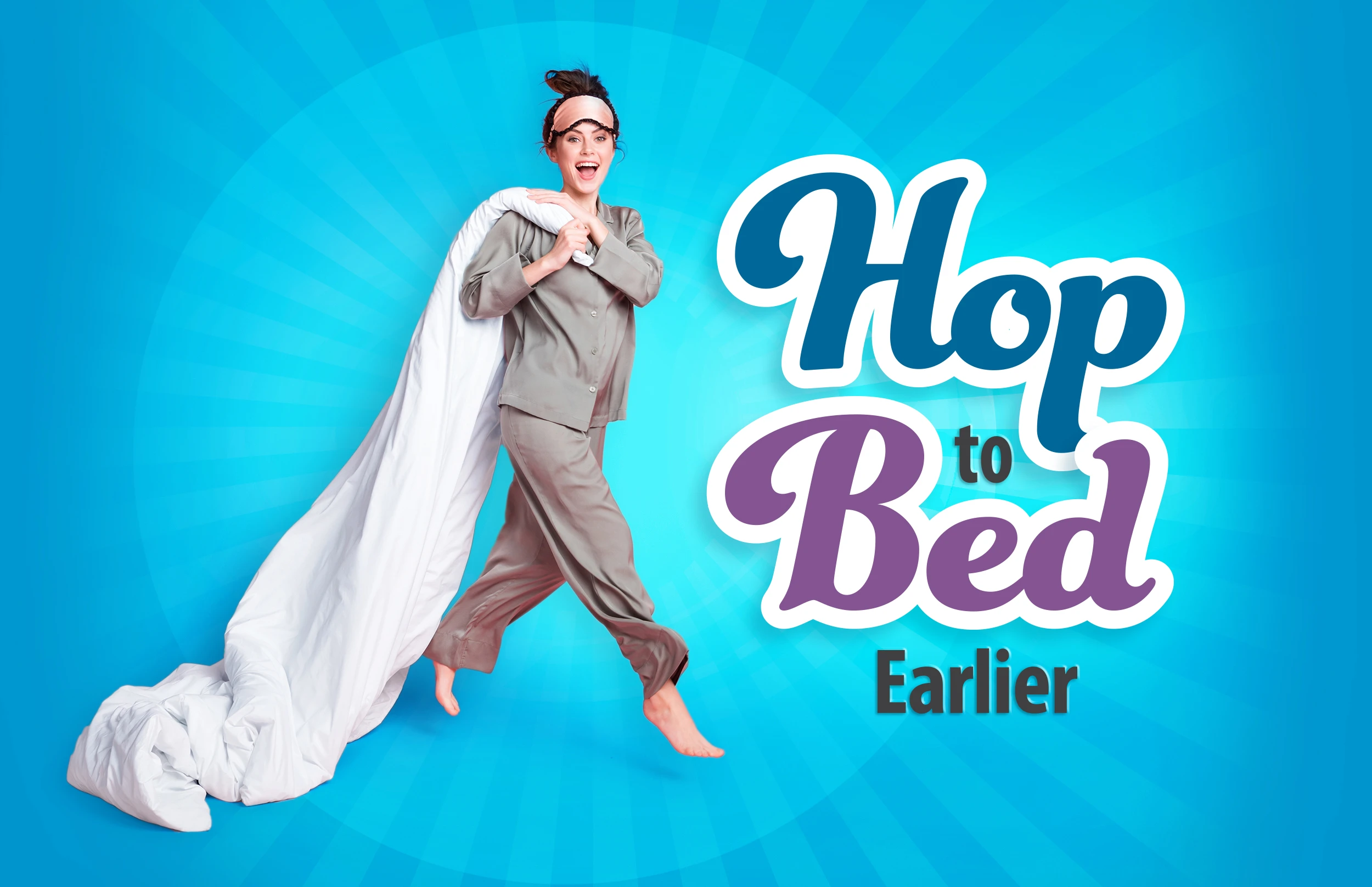
Hop into Bed Earlier
How relaxing is it to hop into bed after a long day? And what’s not to like? The cool pillowcase and soothing atmosphere can uncover the desire to spend more time getting cozy under the covers…sleeping! Hey, we know it’s the day after Valentine’s Day, but really, we’re here to discuss sleep today.
The Centers for Disease Control and Prevention (CDC) recommends that adults aim for 7 to 9 hours of sleep per night, but are you truly getting that much shut-eye? Probably not.
While recent studies and polls indicate we spend up to 11 hours a day in bed, some of that time is spent watching TV, reading, scrolling social media or thinking about “bedder times” when falling asleep was easier. If that’s you, you’re not alone. Nearly 35% of American adults aren’t getting enough sleep.
That’s a problem because when we don’t get enough sleep, our bodies produce more stress hormones, raising blood pressure and increasing arterial inflammation. This inflammation can lead to the development of plaque, which can block blood flow to the heart and lead to heart attacks, irregular heart rhythm and heart failure.
Additionally, lack of sleep can disrupt the balance of hormones in our bodies, including those that regulate blood sugar and appetite. This imbalance can increase the risk of conditions like obesity and diabetes – both of which are major risk factors for heart disease.
So, don’t skimp on sleep! Count some jumping sheep and start getting better zzzs.

The American Heart Association says women are at a higher risk of developing heart disease than men when it comes to losing sleep. Hormonal changes throughout a woman’s life, such as during pregnancy and menopause, also can affect sleep patterns and contribute to heart disease risk. To get better sleep:
- Avoid caffeine and electronic devices at least one hour before bedtime.
- Establish a consistent sleep schedule (even on weekends).
- Create a comfortable sleep environment. Keep your room dark and the thermostat between 60 and 72 degrees

If you’ve been experiencing sleep problems that affect your daily life, especially if it’s lasted several weeks, it may be time to talk to your doctor. This includes insomnia, snoring, sleepwalking, waking up in the middle of the night, restless leg syndrome or struggling to not fall asleep while at work or driving.

Over the past year, there’s been a viral trend – adults filming themselves frolicking in fields. While that might seem silly, playing and giggling have benefits, even for grown-ups. So get ready for some upcoming fun.